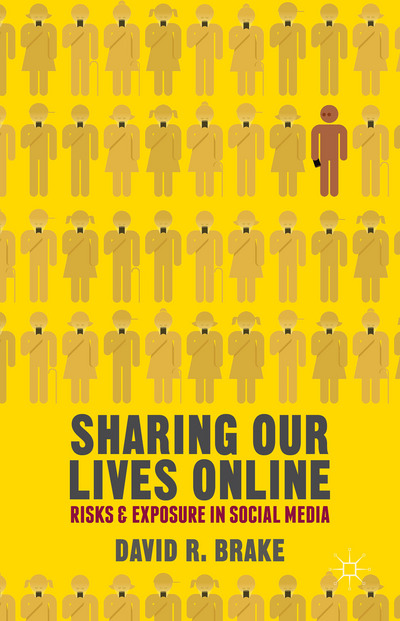Literary Festival 2015: Digital Personhood and Identity
Panellists Luke Dormehl (@lukedormehl), Andrew Murray (@AndrewDMurray), Aleks Krotoski (@aleksk), and Sonia Livingstone (@Livingstone_S) presented a mixture of research and reflection for the Digital Personhood and Identity event at the LSE Literary Festival. Speakers explored what affect our digital landscape and our digital lives have on the foundations of our identity. The Impact blog’s Sierra Williams chaired the event and has pulled together material on the subject previously featured on the blog and from other sources below. Here is the podcast from the event and the reading list. Have something you think might of interest here? Get in touch @LSEImpactBlog or via email!
Podcast
Changing digital landscapes and implications for policy and research
 Philosophy of Data Science with Sabina Leonelli: “What constitutes trustworthy data changes across time and space”
Philosophy of Data Science with Sabina Leonelli: “What constitutes trustworthy data changes across time and space”
The next installment of the Philosophy of Data Science series is with Sabina Leonelli, Principal Investigator of the ERC project, The Epistemology of Data-Intensive Science. Last year she completed a monograph titled “Life in the Digital Age: A Philosophical Study of Data-Centric Biology”, currently under review with University of Chicago Press. Here she discusses with Mark Carrigan the history of data-centric science and research practice and data’s relation to pre-existing and emerging social structures.
 The Organized Mind: How to better structure our time in the age of social media and constant distraction.
The Organized Mind: How to better structure our time in the age of social media and constant distraction.
The information age is drowning us in a deluge of data, and it is becoming increasingly difficult to separate facts from pseudo-facts, objective from biased sources, and at the same time, we’re all being asked to do more at home and at work. Daniel Levitin reviews the cognitive neuroscience of attention and memory, presents the differences between mind-wandering mode and task-focused mode and offers advice for how to boost creativity and limit exhausting brain-shifting distractions.
 Survey findings point to the benefits and risks associated with academics using social media.
Survey findings point to the benefits and risks associated with academics using social media.
While the advantages of social media are increasingly recognised by academics and universities, potential negative aspects need to be identified and managed by individuals and their institutions. Deborah Lupton presents the findings from her survey which underscore how social media can facilitate connection and sharing of material, however the speed and rapid churn of ideas, as well as the use of social media for self-promotion and PR purposes, contribute to increased time pressures and competitiveness.
 “Re-purposing” data in the Digital Humanities: Data beg to be taken from one context and transferred to another.
“Re-purposing” data in the Digital Humanities: Data beg to be taken from one context and transferred to another.
While scientists may be well-versed in drawing on existing data sources for new research, humanists are not conditioned to chop up another scholar’s argument, isolate a detail and put it into an unrelated argument. Seth Long critically examines the practice of re-purposing data and finds data in the digital humanities beg to be re-purposed, taken from one context and transferred to another, opening up a wealth of opportunities for research.
 Four things policy-makers need to know about social media data and real time analytics.
Four things policy-makers need to know about social media data and real time analytics.
The retention and protection of social media data has attracted renewed attention from policy-makers in the UK and across the EU. Having studied the complexity of how social media data operate in contexts of crisis, Ella McPherson provided evidence to a select committee on what lessons can be learned on the ethical and methodological complications of social media analysis. The summary points below form a cautionary tale about the range of issues related to the government analysing social media information.
 Social media’s politics of circulation have profound implications for how academic knowledge is discovered and produced.
Social media’s politics of circulation have profound implications for how academic knowledge is discovered and produced.
As social media and other new forms of media emerge as influential ways to communicate academic knowledge, David Beer argues academics may need to pay more attention to the politics of circulation that increasingly define how academic knowledge is discovered and transmitted. If we don’t understand the politics of data circulations that define contemporary media cultures then we may also find that academic practice is reshaped without sufficient reflection and reaction.
 Participant confidentiality and open access to research data
Participant confidentiality and open access to research data
While protecting human subjects’ confidentiality is a long-standing practice in the social sciences, new types of digital datasets present new challenges. Tensions between privacy and openness were explored in the recent International Digital Curation Conference. Limor Peer reflects on the session she chaired on participant confidentiality in a time of open research data.
Academic identity and the digital age
 What’s in a name? Academic identity in the metadata age
What’s in a name? Academic identity in the metadata age
Professional identity is everything in academia, so Melissa Terras was shocked to discover the Internet had suddenly made her a specialist in Tarot Symbolism. Google Scholar and other online resources are easy to use to illustrate your online portfolio but what effects can it have when the Internet gets things wrong?
 The death of the theorist and the emergence of data and algorithms in digital social research.
The death of the theorist and the emergence of data and algorithms in digital social research.
Computer software and data-processing algorithms are becoming an everyday part of Higher Education. How might this be affecting research in the social sciences and the formation of the professional identities of academics? Ben Williamson argues that these are important challenges for social science researchers in HE, asking us to consider how digital devices and infrastructures might be shaping our professional practices, knowledge production, and theories of the world.
 Taking pleasure in small numbers: How intimately are social media stats governing us?
Taking pleasure in small numbers: How intimately are social media stats governing us?
Critical academics have long been wary of the way formal quantitative data get used to rank, assess and differentially value universities, departments and people. Do similar concerns apply to social networking statistics? Or, is this data on likes, views and followers quite a different matter? At a time when pressures exist to grow one’s numbers, Davina Cooper asks whether there can be any pleasure in small numbers.
 Tweeting out loud: ethics, knowledge and social media in academe
Tweeting out loud: ethics, knowledge and social media in academe
Traditional and digital methods of dissemination clashed recently when a storm over live-tweeting academic conferences blew up in the US. Melonie Fullick looks at the accusation that academics can ‘use’ other people’s work to build up their online brand to benefit their academic career, at the expense of others.
 Disciplinary identities are tightly bound by exclusion. What would scholarship based on inclusion look like?
Disciplinary identities are tightly bound by exclusion. What would scholarship based on inclusion look like?
The politics of distinct disciplinary communities have shaped and arranged scholarly communication filters around practices of exclusion. Whilst these negative filters may have once served a useful purpose, Cameron Neylon argues that the digital world offers an opportunity to build better filters, positive filters – filters that enrich, instead of filters that exclude.
Book Reviews on Digital Identity and Personhood
 Book Review: DIY Citizenship: Critical Making and Social Media, edited by Matt Ratto and Megan Boler
Book Review: DIY Citizenship: Critical Making and Social Media, edited by Matt Ratto and Megan Boler
Contributors to this volume examine DIY activism, describing new modes of civic engagement that include Harry Potter fan activism and the activities of the Yes Men. They consider DIY making in learning, culture, hacking, and the arts, including do-it-yourself media production and collaborative documentary making. Brian D. Loader is impressed by this exciting and innovative read.
 Book Review: Humanity 2.0: What it Means to be Human Past, Present and Future
Book Review: Humanity 2.0: What it Means to be Human Past, Present and Future
Social thinkers in all fields are faced with one unavoidable question: what does it mean to be ‘human’ in the 21st century? As definitions between what is ‘animal’ and what is ‘human’ break down, and as emerging technologies such as artificial intelligence and nano- and bio- technologies develop, accepted notions of humanity are rapidly evolving. Francis Remedios finds that although Humanity 2.0 offers challenging ideas, readers who work through those ideas will be rewarded.

The growth of social media sees us heading towards a radically open society. David R. Brake aims to provide an overview of the harms that can be posed by unwary social media use for both adults and children. He then draws on in-depth interviews, and a range of related theories of human behaviour to consider why this happens. This is an interesting resource for students and scholars in the fields of digital media and interpersonal communication, concludes Stefania Vicari.
 Book Review: The Digital Youth Network: Cultivating Digital Media Citizenship in Urban Communities by Brigid Barron et al.
Book Review: The Digital Youth Network: Cultivating Digital Media Citizenship in Urban Communities by Brigid Barron et al.
This book describes work of the the Digital Youth Network, an ambitious project to help economically disadvantaged middle-school students in Chicago develop technical, creative, and analytical skills across a learning ecology that spans school, community, home, and online. Sara Marino heartily recommends the book to mentors, researchers, and organisers who are interested in the design and implementation of similar digital media initiatives.
 Book Review: Digital Media and Society: Transforming Economics, Politics and Social Practices by Andrew White
Book Review: Digital Media and Society: Transforming Economics, Politics and Social Practices by Andrew White
Andrew White considers the way in which digital media challenges normative conceptions of the public sphere and discusses this in relation to the creation of new forms of knowledge through the digitization of scholarly resources and the impact of digital media on traditional conceptions of identity. This book is an engaging contribution to the growing literature on the intersection of the public and private within an ever-changing digital landscape, writes Maxine Montaigne.
More from the speakers
 Unheard 1998 interview reveals Steve Jobs’ thoughts on Apple and higher ed – Cult of Mac
Unheard 1998 interview reveals Steve Jobs’ thoughts on Apple and higher ed – Cult of Mac
“Right from the start, Apple has had one foot firmly in the education market. Today the conversation tends to be about getting iPads into schools around the world, but as far back as the 1980s Apple was cultivating relationships in the higher-education market — where it picked up some of its most loyal evangelists.” Read more from Luke Dormehl
 The Digital Human (Podcast series) BBC Radio 4
The Digital Human (Podcast series) BBC Radio 4
Aleks Krotoski charts how digital culture is moulding modern living. Each week join technology journalist Aleks Krotoski as she goes beyond the latest gadget or web innovation to understand what sort of world we’re creating with our ‘always on’ lives.
 The Regulation of Cyberspace: Control in the Online Environment by Andrew Murray. Examining the development and design of regulatory structures in the online environment,The Regulation of Cyberspace considers current practices and suggests a regulatory model that acknowledges its complexity and how it can be used by regulators to provide a more comprehensive regulatory structure for cyberspace.
The Regulation of Cyberspace: Control in the Online Environment by Andrew Murray. Examining the development and design of regulatory structures in the online environment,The Regulation of Cyberspace considers current practices and suggests a regulatory model that acknowledges its complexity and how it can be used by regulators to provide a more comprehensive regulatory structure for cyberspace.
 Developing social media literacy: How children learn to interpret risky opportunities on social network sites
Developing social media literacy: How children learn to interpret risky opportunities on social network sites
The widespread use of social networking sites (SNSs) by children and young people has significantly reconfigured how they communicate, with whom and with what consequences. Drawing on cross-national interviews and informed by the tradition of research on media literacy, Professor Sonia Livingstone discusses the idea of social media literacy as part of the LSE NetworkEDGE series. Slides here.








